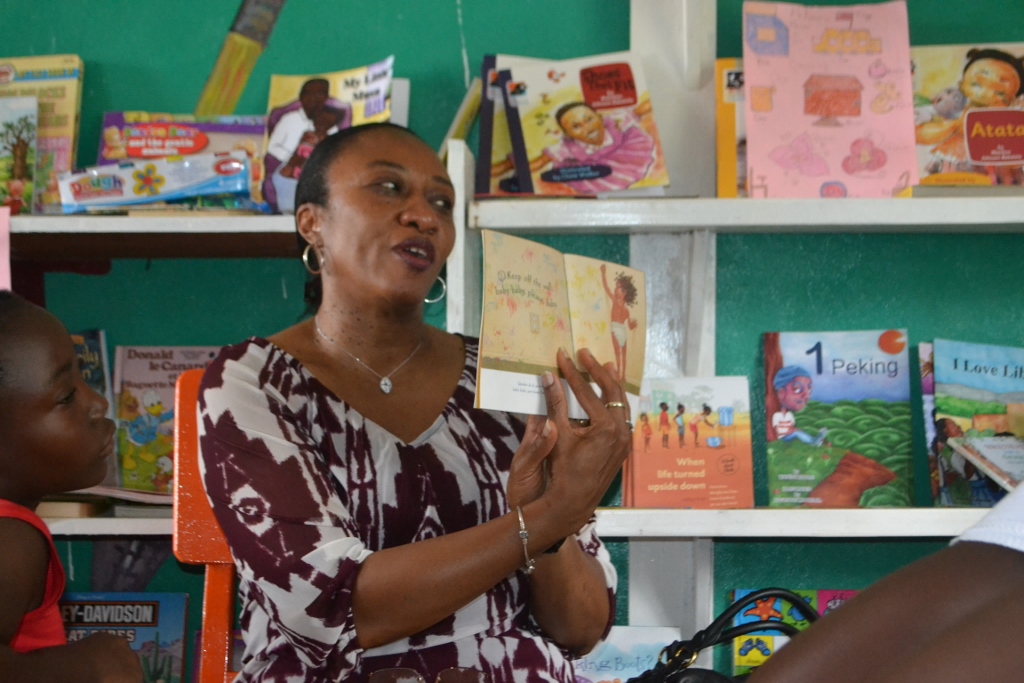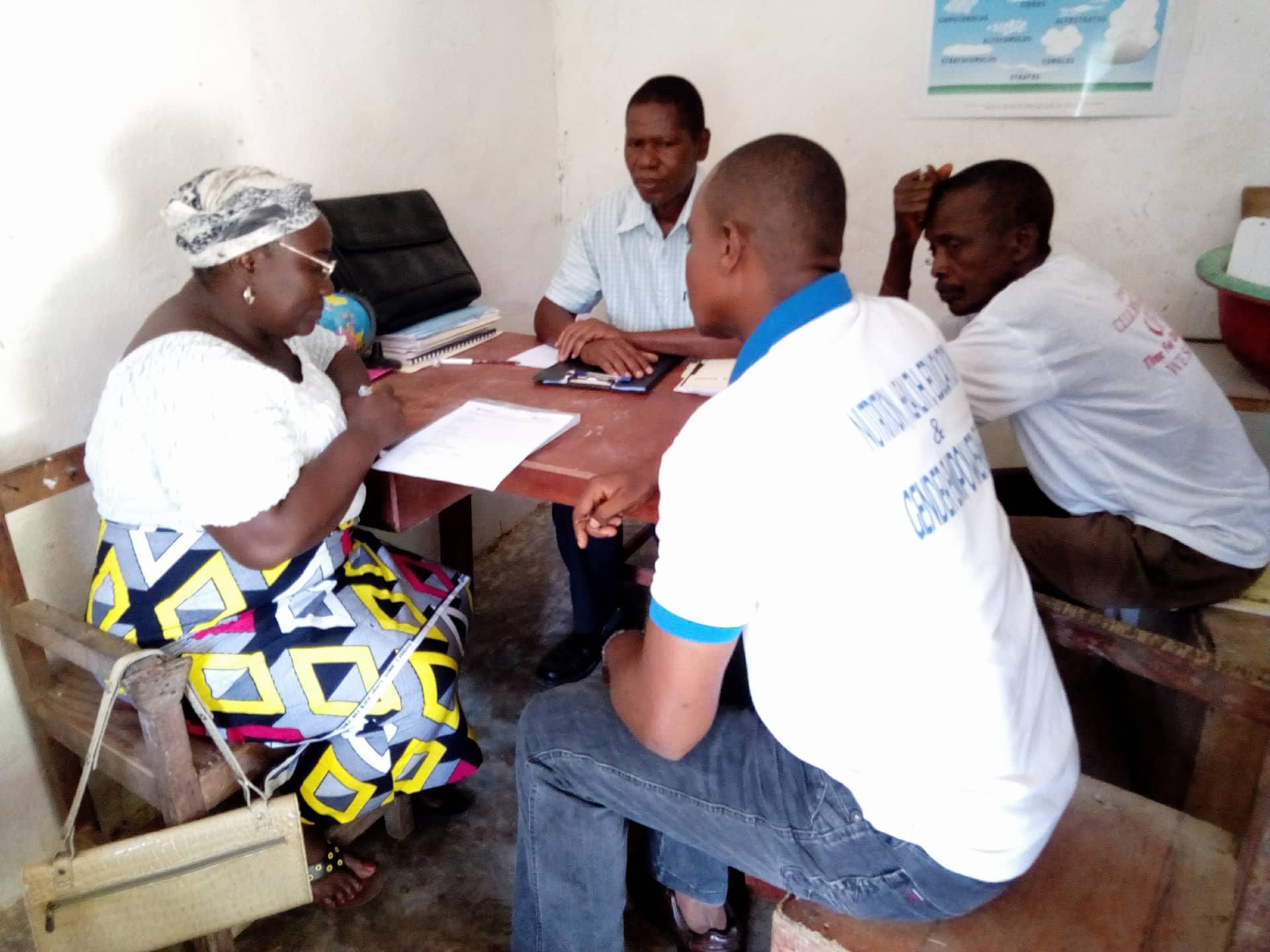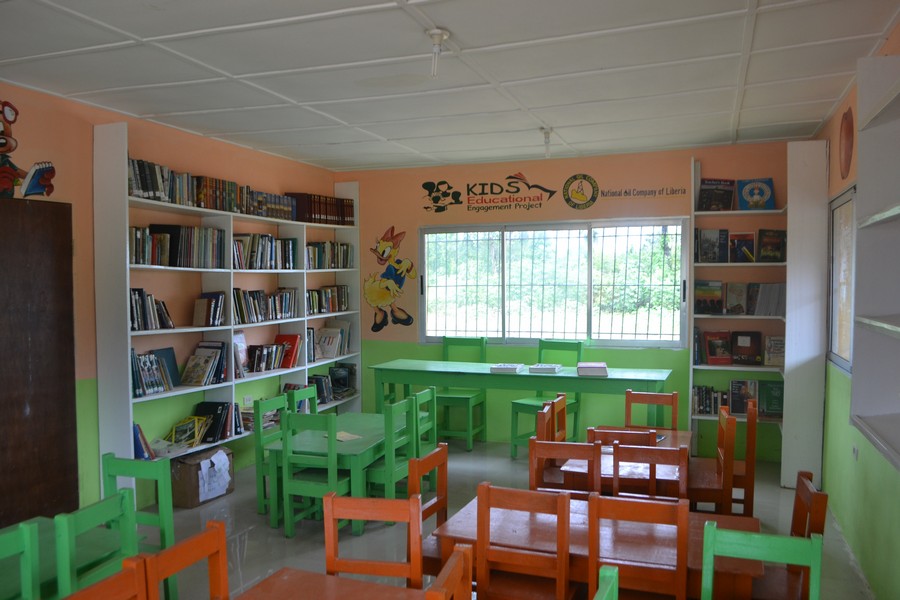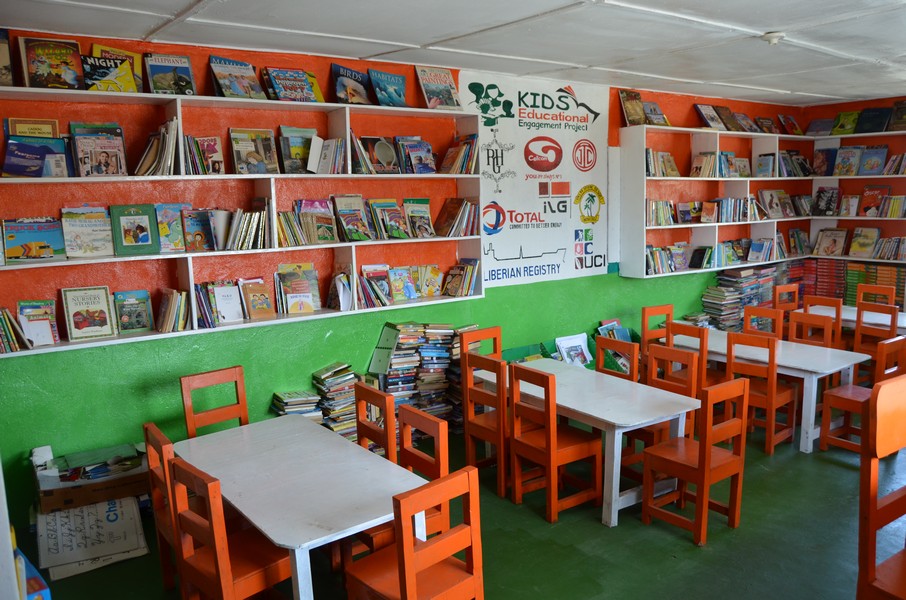Liberia has a population of approximately 4 million of which, only 46.7% are literate. 60% of this number is under the age of 24. A clear indication we have a youthful population that is illiterate. Many organizations have come up with plans and strategies to help change the narrative and KEEP has been one of them.
One of KEEP’s core goals is promoting a culture of reading among students across Liberia, with a focus on primary school students. Currently we work in 43 communities in Grand Gedeh, Gbarpolu and Montserrado county and one thing that has cut across all of these communities (across the various programs we do) is the low interest in reading, low reading skills and limited comprehension of what they read.
As an organization, KEEP has developed several strategies to promote reading among students and one of those has been establishing conducive reading spaces for students to access books to read as well as having regular reading sessions with the students in these reading rooms. We have also garnered the involvement of the teachers as well and provided training to them on strategies that promote reading, easy sight word recognition, how to establish book clubs, etc.

These strategies are paying off and we have seen an increased interest in reading by the students as well as more specific emphasis by teachers on helping students have better word recognition and increased reading proficiency.
In early 2016 before KEEP completely rehabilitated its “library”, an informal survey was conducted among the students of the JLM Public school in Gbengbar’s town, Montserrado and 8 out of 10 students questioned admitted that they did not have a time in the day when they read and never went to a library. When teachers were asked if the students utilize the school’s existing “library”, they admitted not often, due to numerous reasons.
KEEP staff observed that textbooks given to the school by the Ministry of Education were not being used by the students and prescribed reading books when given during reading classes were retrieved at the end of the classes.
With the support of several corporate partners (MTN, Starz, FPA) and generous individual donors, KEEP was able to transform the schools’ “library” into a more conducive reading space and establish regular reading sessions in the rooms to pique the students interest in reading and improve their reading skills.
At the end of the school year, KEEP conducted another informal survey with the students and teachers and noted 6 out of 10 students responded that they now read at least one book a month and went into the reading room to study. Due to increased discussions and training with the teachers at the school, the teachers are also now having reading sessions with the students at the room, allowing them to take books home to read and reduce the “rote learning” that had been observed previously during reading class periods.
Across the communities that KEEP works in, one strategy that has helped with increased interest in reading by the students has been recruiting the support of parents. The goal has been simple, regardless of the literacy level of the parents, they are encouraged to have their child take a book each day to read. Even if it means just looking at storybook with mostly picture and large size letters. We have also worked closely with mothers who are now serving as Mother Monitors. These mothers make monthly monitoring visits at the public schools in their locality and engage the school administration on service delivery and learning goals.

KEEP’s projects have been -thus far- successful as well due to the immense community ownership and support it has received. From the very beginning at the community entry, the collective community is actively involved and willingly provide “sweat equity” which involves providing easily obtained raw materials.
Regular reading sessions where volunteers come in to read with and to the students has also shown increased interest in accessing the reading rooms and the students coming in during the week to borrow books to read. In one of our room located on the Duport Road, attendance went from 16 students on a Saturday morning to close to 60 after 3 months, thus compelling us to run 2 sessions a day!
There are some challenges that makes it difficult to push KEEP’s overall agenda of promoting reading and improving reading skills among early learners and as an organization, we have learned to leverage the relationships of trust we have built over the years with the county authorities, the Ministry of Education as well as proven track record in other communities
Despite challenges like limited funding to do more monitoring or engage in more teachers training, KEEP is excited about its progress thus far and looks forward to establishing more reading rooms in other counties in the near future.











